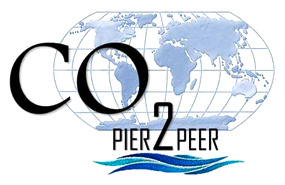
Build your community, capacity, and career through Pier2Peer
About Pier2Peer
Pier2Peer is an international mentorship program that pairs mentees who are new to ocean acidification work with experienced mentors in the field. The program aims to foster community among ocean acidification (OA) professionals, build long-term capacity to measure and address OA globally, and provide training opportunities to support careers in OA-related fields.
If you have any questions about the GOA-ON Pier2Peer program, please contact the Pier2Peer Program Coordinator, Liz Perotti at liz.perotti@noaa.gov.
Join Pier2Peer
Become a Mentee ("Peer")
Pier2Peer accepts new cohorts of mentees on an annual basis. Once accepted, mentees are paired with mentors based on availability and alignment of interests. Mentee applications are currently closed. Check back in July 2026 to apply for the next Pier2Peer cohort.
Image Credit: The Ocean Foundation
Mentee Eligibility Requirements
If you are new to the field of ocean acidification, we encourage you to apply to be a Pier2Peer mentee. Pier2Peer mentees can be at any career stage. The time limit to be a Pier2Peer mentee is 2 years, so if you have already been a mentee for two years under a previous match, you are no longer eligible to apply for the Pier2Peer program as a mentee.
Mentees are expected to be self-motivated and to lead the interactions by reaching out to the mentor, introducing themselves, and scheduling the initial and following meetings. It is recommended that the mentee think about their goals and what they would like to accomplish through this mentorship. They are expected to show up prepared for each meeting and to be respectful of the time the mentor is dedicating to them.
Become a Mentor ("Pier")
We are currently accepting new Pier2Peer mentors! If you are interested in joining the program as a mentor, please read the mentor eligibility requirements and terms of reference, then follow the link below to complete the registration form. Mentors will be contacted on an annual basis to confirm their availability for the upcoming cohort of mentees.
Photo: Workshop participants learn about OA instruments at a practical best practices training.
Mentor Eligibility Requirements
Any GOA-ON member who is an experienced or senior-level scientist and is actively engaged in ocean acidification research is encouraged to become a Pier2Peer mentor. A Pier2Peer mentor should be willing to regularly communicate with their mentee and should be invested in their mentee’s professional growth. Pier2Peer mentors should also be excited about the opportunity to work with mentees whose backgrounds or experiences may be different from their own.
Mentors are expected to be responsive to the mentee in a timely manner and to help support the mentee’s goals to the best of their ability. The mentor can also consider opportunities that they become aware of within their network and pass them on to the mentee, whether or not those opportunities are directly related to the mentor’s work. Mentors will be contacted on an annual basis to confirm their availability for the upcoming cohort of mentees.
Terms of Reference
The Pier2Peer Program supports active mentee/mentor pairs for one year, with the option to renew for a second year. The limit to participate in the program as a mentee is 2 years. To be considered an active participant, mentees must (1) complete the entrance and exit surveys distributed by the Pier2Peer Coordinator and (2) be in regular contact with their mentor. Mentors and mentees are expected to meet at least quarterly during their time in the Pier2Peer program. Participants are expected to be reliable, enthusiastic, willing to learn and grow, open to sharing knowledge and perspectives, and have aligned expectations on what they hope to gain from the experience.
Following completion of the Pier2Peer program, certificates of completion will be awarded to Pier2Peer mentees in good standing. To earn a certificate, mentees must complete the entrance and exit surveys distributed by the Pier2Peer Coordinator and be in quarterly contact with their mentor and/or in attendance at 2 or more Pier2Peer events throughout their tenure as a mentee.
The Pier2Peer Coordinator facilitates mentor/mentee matching, organizes Pier2Peer programming, and serves as a general resource to help mentee/mentor pairs gain the most from their Pier2Peer experience. To date, the Pier2Peer Coordinator sits within the NOAA Ocean Acidification Program and also serves on the GOA-ON Secretariat.
The Matching Process
When new mentors register for the Pier2Peer Program, their information will be used to generate mentor profiles that will be added to a mentor directory. A mentor profile will consist of biographical data, information about a mentor’s research focus and expertise, and details about their mentorship style. The mentor directory will be updated annually to reflect mentors who are available to accept new mentees for the upcoming cohort.
After mentees are accepted into the Pier2Peer program, they will be directed to the list of available mentors and asked to rank up to five possible mentors with whom they would like to work. By giving new mentees the opportunity to browse the profiles of available mentors, they can identify individuals whose interests, skills, and expertise are most aligned with their specific needs. During this process, the Pier2Peer coordinator may also provide suggestions to the mentees based on their application materials.
The Pier2Peer Coordinator will then use all of the information gathered from the mentors and mentees to suggest new pairs. Participants will be notified of their match via an email containing the name, contact information, and country of their partner.
Building OA Capacity
The need for additional ocean acidification monitoring and research capacity has been well established by the scientific community. The Pier2Peer Program meets this need by pairing experienced researchers with scientists new to the field of ocean acidification, facilitating the transfer of knowledge, skills, and data, and ultimately expanding the community of professionals capable of monitoring and studying OA. The Pier2Peer Program also builds capacity in a number of other ways:
Trainings
In partnership with GOA-ON, the International Atomic Energy Agency’s OA International Coordination Centre (OA-ICC), the Intergovernmental Oceanographic Commission (IOC), and The Ocean Foundation (TOF), the Pier2Peer Program occasionally offers concentrated trainings that are hosted by highly skilled scientists in world premier OA laboratory settings.
Photo: Dr. Katy Soapi (left) demonstrates proper laboratory techniques to assess carbonate chemistry parameters. Image Credit: The Ocean Foundation
Scholarships
In partnership with The Ocean Foundation (TOF), the Pier2Peer Program offers scholarships to facilitate collaborative projects between mentor-mentee pairs. Scholarship calls are announced twice a year through Pier2Peer community channels. Pier2Peer mentees are eligible to apply for the scholarship if they are an active Pier2Peer mentee. To be considered "active", mentees must complete the surveys distributed by the Pier2Peer Coordinator and be in contact with their mentor at least quarterly.
The primary purpose of these scholarships is to enable mentees to design and implement high-quality monitoring and research projects in partnership with their mentors. Awards range from $5,000 - $7,500 USD are available and offered twice a year. For more information, please contact the Pier2Peer coordinator at liz.perotti@noaa.gov or Kaitlyn Lowder at TOF.EquiSea@oceanfdn.org. Calls for applications will be announced on this page twice per year.
Pier2Peer is currently accepting scholarship applications! See the announcement below for details on how to apply.
Photo: Pier2Peer Scholarship Recipient Dr. Valentina Amaral Acosta confers with her mentor, Dr. Cesar Bernal, in the lab.
Frequently Asked Questions
- Am I eligible to be a Pier2Peer mentee?
- If you are new to the field of ocean acidification, we encourage you to apply to be a Pier2Peer mentee. Pier2Peer mentees can be at any career stage or of any age. The time limit to be a Pier2Peer mentee is 2 years, so if you have already been a mentee for two years under a previous match, you are no longer eligible to apply for the Pier2Peer program as a mentee.
- Am I eligible to be a Pier2Peer mentor?
- Any GOA-ON member who is a mid-career to senior-level scientist and is actively engaged in ocean acidification work is encouraged to become a Pier2Peer mentor. A Pier2Peer mentor should be willing to regularly communicate with their mentee and should be invested in their mentee’s professional growth. Pier2Peer mentors should also be excited about the opportunity to work with mentees whose backgrounds or experiences may be different from their own. We especially encourage former P2P mentees to return as mentors!
- Do I have to be a natural scientist to be a Pier2Peer mentor or mentee?
- You do not need to be a natural scientist to apply to be a Pier2Peer mentor or mentee. We encourage social scientists, communications and education experts, natural resource managers, policymakers, and more to apply for the program. We will do our best to pair you with a mentor/ mentee that best matches your interests and needs.
- What language is the program conducted in?
- The Pier2Peer Coordinator will communicate with mentors and mentees in English. During the mentor/mentee pairing process, mentees will have the opportunity to see what languages a mentor speaks and may choose to select a mentor with this information in mind.
- When can I apply to join the next cohort of Pier2Peer?
- Pier2Peer mentee application calls are open once a year, with applications typically due in September of each year. Navigate to the “Join Pier2Peer!” section of this webpage to see if we are currently accepting mentee applications. If you are interested in becoming a mentor, please fill out our application at this link.
- How long will it take to be matched with a mentor?
- Prior to 2025, Pier2Peer made mentor and mentee pairs on a rolling basis. Now, Pier2Peer operates using an annual cohort model. Mentees will be notified if they are a finalist in the program in September of each year, and will then work with the Pier2Peer Coordinator to solidify a mentor match by October.
Newsletters
The Pier2Peer Program fosters community among participants by distributing a newsletter. This newsletter, known as the Pier Review, showcases the accomplishments of Pier2Peer pairs and shares news, updates, funding and job opportunities, and recently published open-access publications. Past issues can be found below.
Resources






